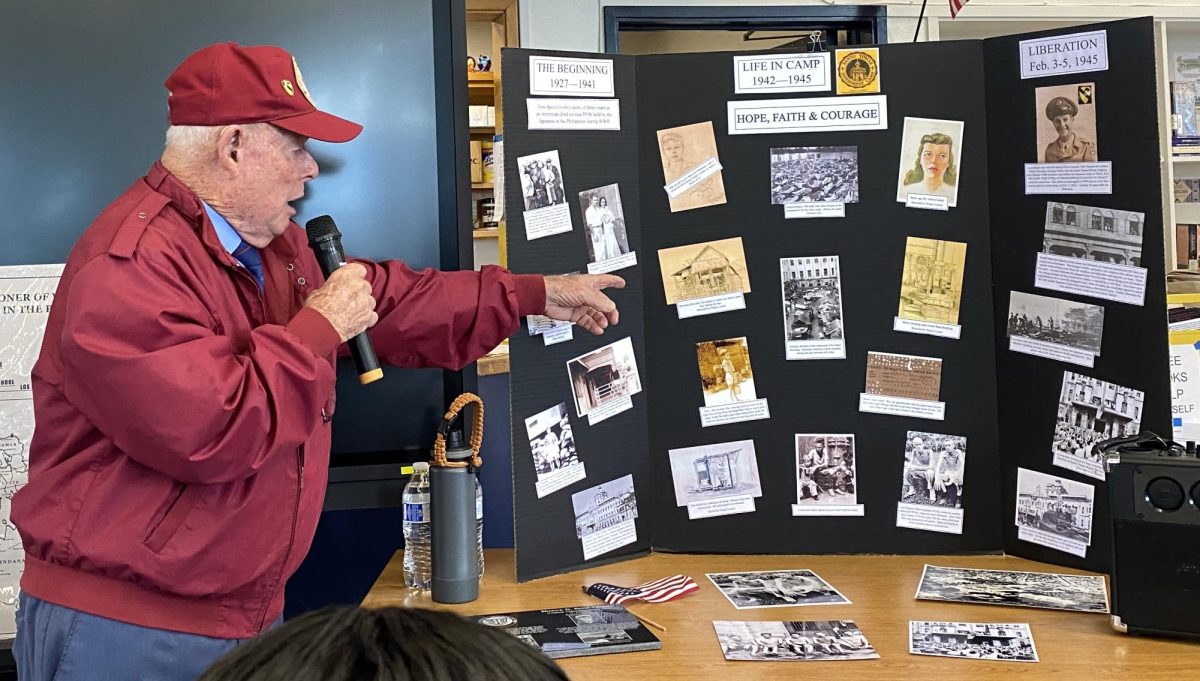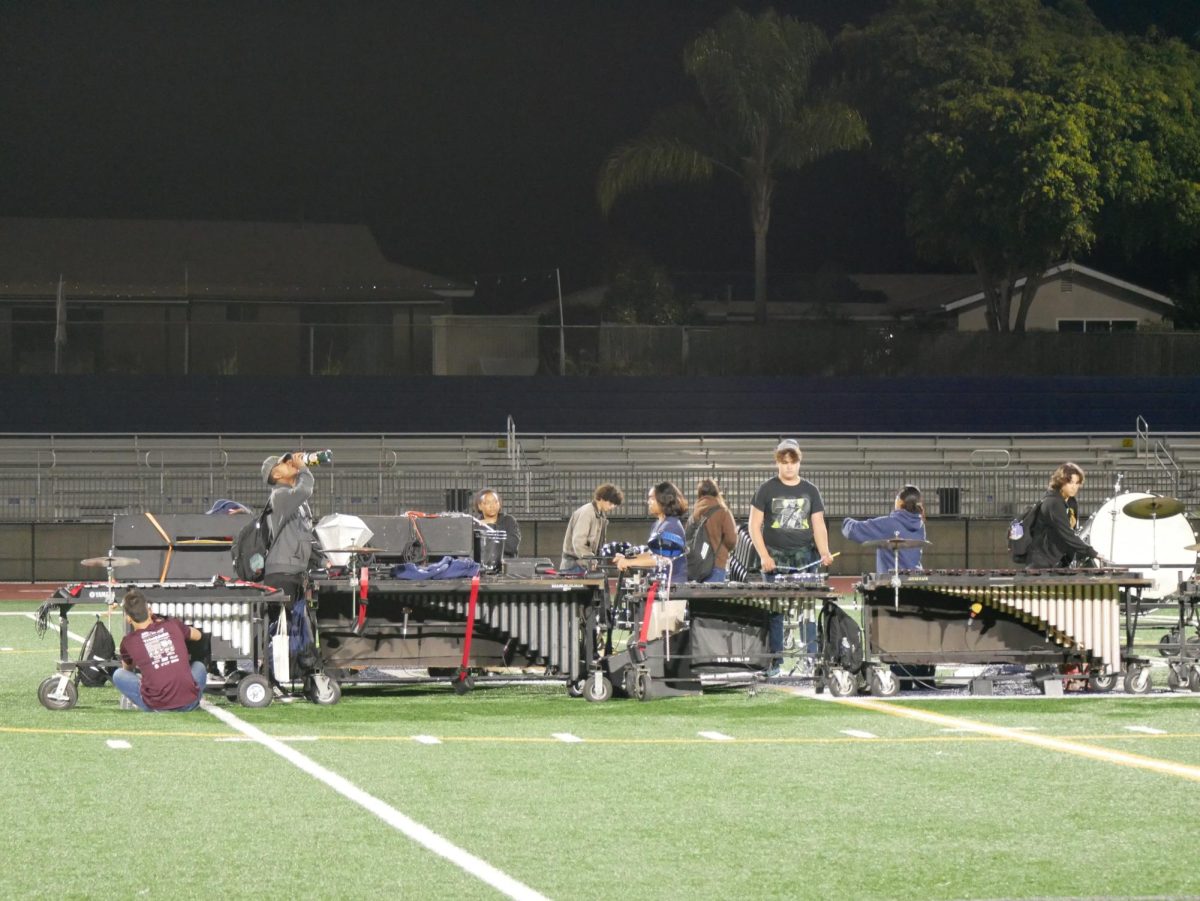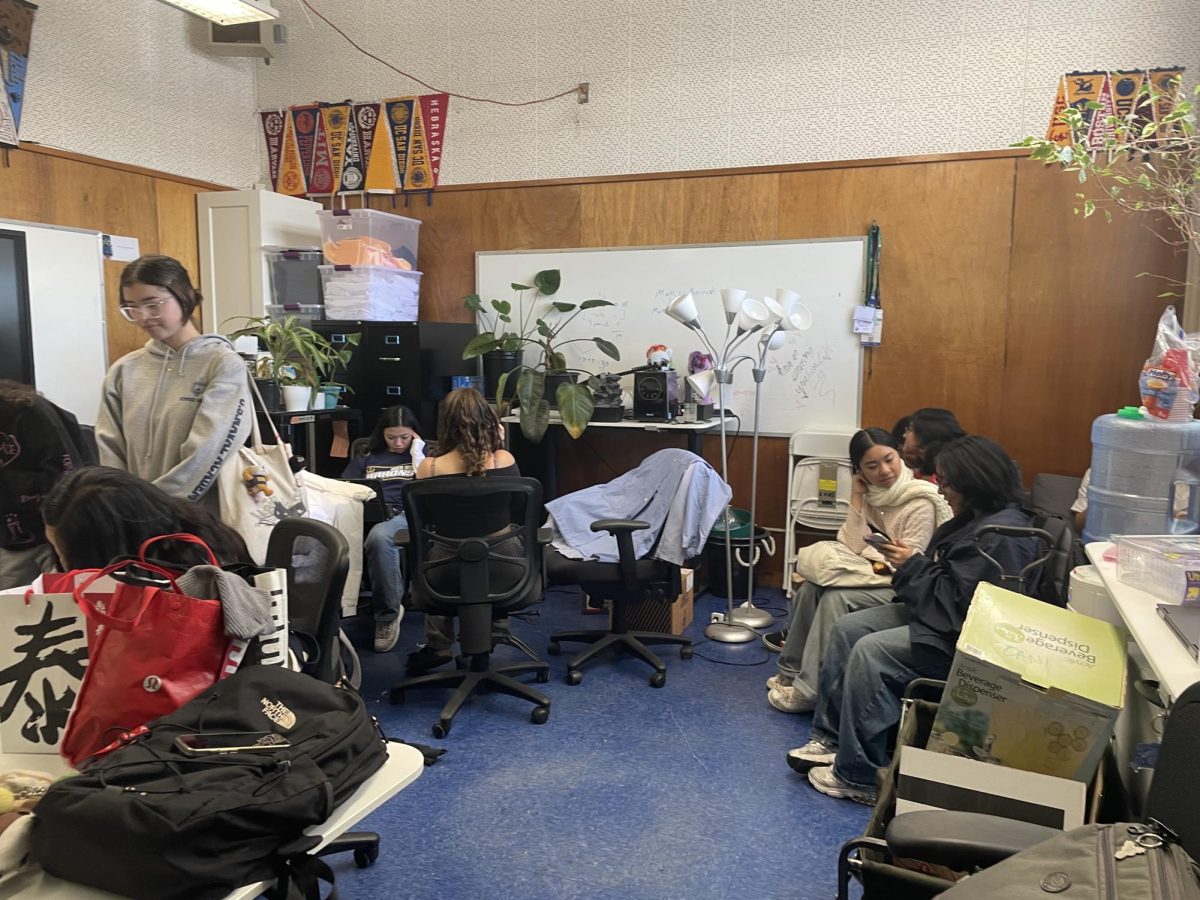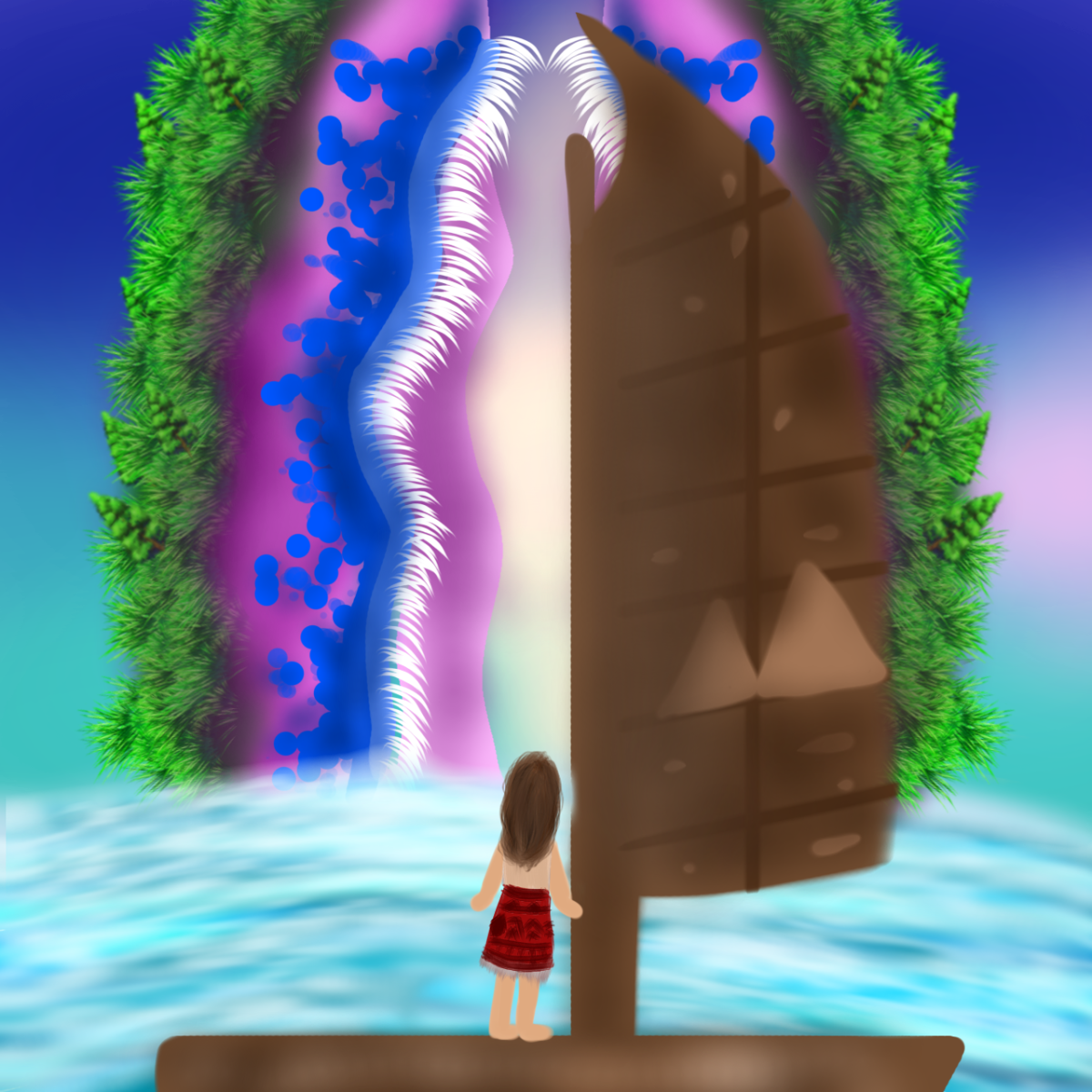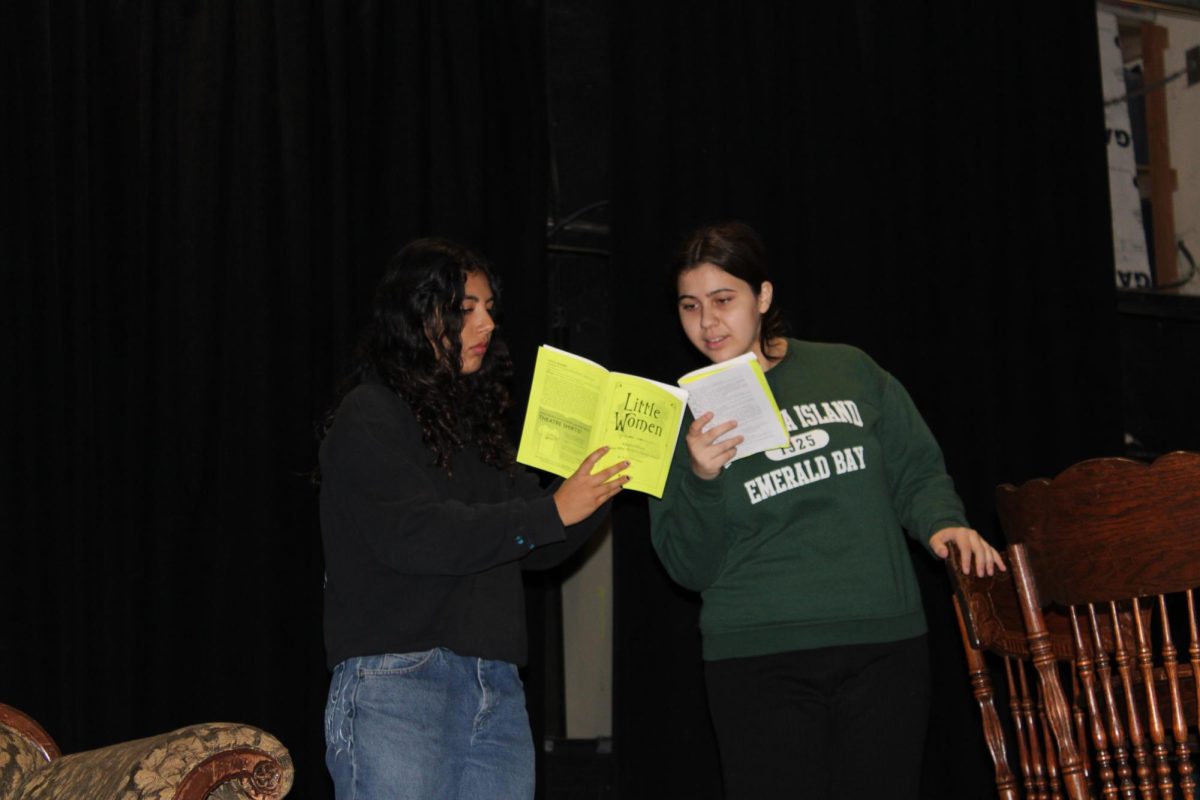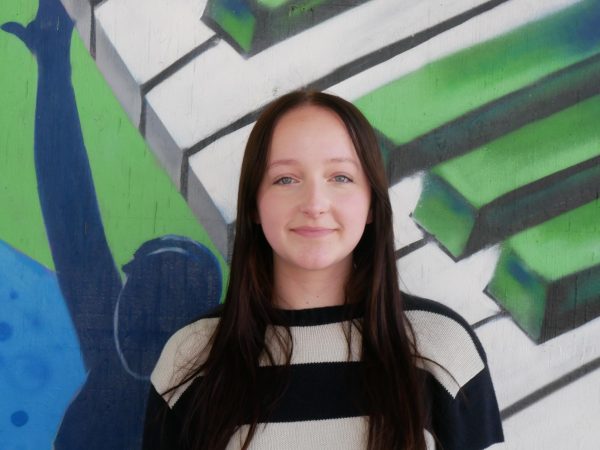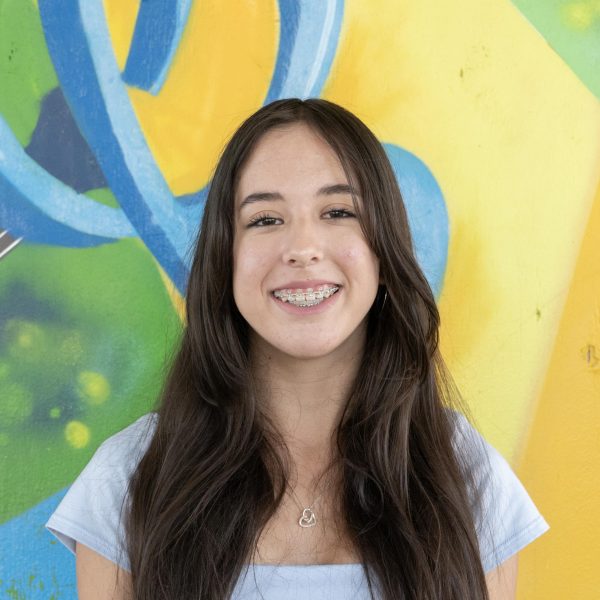On Nov. 29, World War II prison camp survivor Thomas Crosby shared his experience of being in the camp Santo Tomas in Manila, the capital of the Philippines, from eight to 11 years old in the Bonita Vista High (BVH) library. After presenting his story, students were given the opportunity to ask questions and take photos to remember their interactions.
Crosby explains why it is essential for students to know what it is like for people, especially children, during war. He further explains that now is an important and prevalent time for students to learn because of the conflict happening between Israel and Palestine, as people are experiencing the same things as he did.
“No kid should ever experience that. I feel sorry for the Middle East right now with the hostages that are going through what [students here] could have been through. [BVH students are] lucky that they’re coming home. The times are different. The enemy is totally different. It’s an experience of appreciation of life after you survive,” Crosby said.
Crosby wishes them to grow appreciative of what they have, through his story. Throughout his presentation, Crosby emphasizes the effects he faced in camp Santo Tomas. There were multiple instances where he could have not ended up where he is today.
“When you go through something like that, everything after that, you appreciate. There were three times that I could not have been here. One was starvation. One was a shelling. And the [other one was a] hostage situation,” Crosby said.
During Crosby’s presentation, BVH counselor Reynila Calderon-Magbuhat mentions how her family had gone through similar experiences as Crosby during the war. Crosby further explains how hearing similar stories and knowing that people can relate to what he has gone through is reassuring.
“It’s gratifying that when they hear my story, they can relate to somebody in their family who’s been in very similar circumstances. To me it feels good that I am not just talking to strangers, I’m talking to people [whose] families have lived [through] something similar,” Crosby said.
Following Crosby’s purpose of his presentation, his story allowed students to realize the experiences they could have faced. Advanced Placement (AP) Spanish language and Spanish 3-4 teacher Maggie de la Cruz organized for Crosby to present to her AP Spanish language class, since it correlated with their lessons.
“I met [Crosby] and we became friends. One of the topics in AP Spanish language is global challenges and those global challenges are war and [war’s] effects on children. So I connected this to the situation in Israel and Gaza because children are the ones who suffered during war,” De la Cruz said.
De la Cruz and Crosby emphasize how students should relate his story to the current events in the Middle East. Doing this allows the students to think of the unit as not just a class assignment, but rather a prevalent issue.
“I wanted [Crosby’s] story to be told because when you think of prisoners of war, you never think of children. You think of adults. [Crosby] is now 90, and for me it was very important to get his story out,” De la Cruz said.
De la Cruz mentions that Crosby’s story is not one that many people hear about. Being able to hear different perspectives, allows people to learn more about life during World War II. Crosby emphasizes his message of the importance of freedom.
“To those of us who have lived through freedom, I say it’s not free, and I want them to appreciate freedom. Most people don’t think of it as that. But if you appreciate something, you’ll be part of it. Hopefully, you will be learning something from it. The respect for that is extremely important. Other countries don’t have what we have,” Crosby said.
Similarly, De La Cruz agrees on Crosby’s message that not everyone has the same freedom. It may be harder for students to understand since they have not experienced anything to make them question that factor. She mentions that students should appreciate what many do not have.
“You learn how to be grateful and to appreciate everything you have and realize that not every day is guaranteed. So you need to make the most of life and I do like what Crosby said, ‘You volunteer,’ you go out there and do something because that’s what makes this world a better place,” De la Cruz said.
Following his message, Crosby wants students to be involved and give back to their community. Students having insight into others lives that are different from theirs can change the way they view their life. For instance, Crosby’s girlfriend Carol Knott met him through learning about his story and became more interested and wanted to know more. She expresses how her appreciation for military members has grown since hearing Crosby’s story.
“It’s important that [students] understand what the military has to go through to keep us safe, so we can enjoy the freedom we have. Because it’s so easy to take that for granted. We both feel a need for our young students to understand the history of the United States, and to appreciate freedom,” Knott said.
Knott and Crosby hold presentations for others such as veterans and at senior citizen homes. Knott adds how Crosby is willing to talk to anyone who wants to listen to his story. Moreso, De la Cruz expresses how Crosby’s presentation is important when understanding and connecting to his story and those who underwent the similar experience.
“People who have been through situations like this, people who are part of history and who have a story to tell [are important]. And sometimes me telling their narrative, it’s not the same. It’s better when they hear it first hand,” De la Cruz said.
On top of Crosby’s presentation, De la Cruz was also a part of organizing Rose Schindler’s presentation on her experience as a Holocaust survivor, in April of 2022. She hopes to continue to organize more impactful presentations, where students can listen to stories first hand, rather than reading from a textbook.
“I’m hoping that [students will] remember and pass it on, because it’s valuable to the younger generation. I hope that [these presentations] will get them to appreciate and respect our freedoms,” Crosby said.
Crosby hopes students will understand his message and the lessons they can learn from it. Being able to talk to students allows him to spread his story to all those who should hear and he hopes that they remember the significance of what he said.
“I think it’s wonderful that there are enough kids that are interested enough that they’ll listen and hopefully they’ll remember. I know my story is unique, but I can sum it up by saying three words: hope, faith and courage. All three of those I have lived through,” Crosby said.

